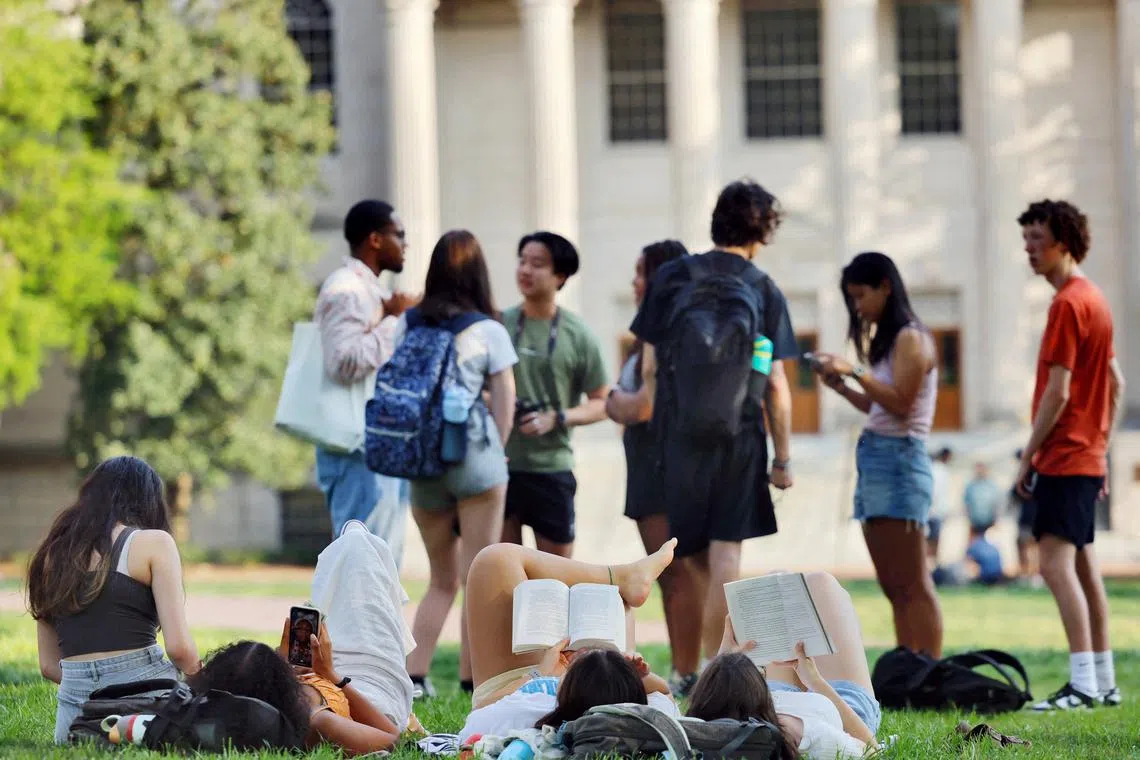US colleges will be able to block out student’s race on admission application
Sign up now: Get ST's newsletters delivered to your inbox

Beginning Aug 1, colleges will be able to hide the information on race from their own admissions teams.
PHOTO: REUTERS
WASHINGTON – Each year, the one million or so students in the United States applying to college through the Common App are given an option to check a box, disclosing whether they identify as Hispanic, Asian, black or white, among other choices.
Now, with the US Supreme Court expected to rule soon against race-conscious admissions – and with colleges wanting to follow the law – the app has made a pre-emptive move on what is known as the “race box”.
Beginning Aug 1, colleges will be able to hide the information in those boxes from their own admissions teams, said Ms Jenny Rickard, chief executive of the Common App.
The new option will help colleges comply “with whatever legal standard the Supreme Court will set in regards to race in admissions”, Common App said.
A non-profit entity, it administers a universal application used by more than 1,000 colleges and universities.
The decision, which appears to be aimed at immunising colleges from litigation, is one of the first concrete examples of how college admissions might be transformed if the Supreme Court bans or restricts race-conscious admissions.
The college opt-out could also put more pressure on applicants to signal their racial and ethnic background through other means, primarily in essays or teacher recommendations.
The scope of the court’s decision, expected in late June, is unknown. But the justices showed a keen interest in the use of race boxes during the oral arguments last fall.
Colleges have said they will follow the law but are wary of future litigation. Groups opposed to affirmative action have said that they may file lawsuits that could test the boundaries of the Supreme Court’s ruling.
Masking the race boxes on the Common App could give universities a measure of plausible deniability, legal experts said, and perhaps some protection from lawsuits.
But more litigation around the broader issue of diversity, like scholarships for black students, seems likely.
“There is a colossal, well-organised, well-funded attack agenda,” said Mr Art Coleman, managing partner of Education Counsel, a consulting firm working with universities on the Supreme Court cases. NYTIMES


